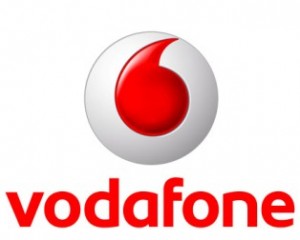 India’s telecom regulator has alleged that Vodafone, Tata Teleservices and Dishnet (Aircel) are causing losses to the exchequer by booking higher revenues towards long-distance calls.
India’s telecom regulator has alleged that Vodafone, Tata Teleservices and Dishnet (Aircel) are causing losses to the exchequer by booking higher revenues towards long-distance calls.
Long-distance calls, popularly called known as STD, attract the lowest level of levies or revenue share. Therefore booking higher revenues in this segment reduces the licence fee that operators will have to pay the government. Put simply, Trai is of the view that these operators were passing off some of their revenues from local calls and other services as that from STD calls.
Trai in its May 14 communication to the telecom department, a copy of which was reviewed by ET, said its analysis revealed that these three companies were booking higher revenues in their STD business to avoid higher licence fee. It pointed out that telcos share only 6{e1f18614b95d3cd6e4b3128e1cd15d99b042a60a5a19c19b7a8e07e7495efa10} of their revenues from long distance with the government.
On the other hand, they have to share 10{e1f18614b95d3cd6e4b3128e1cd15d99b042a60a5a19c19b7a8e07e7495efa10} of their total revenues from metros and Category A Circles such as Gujarat and Tamil Nadu as licence fee. Mobile phone companies currently share 8{e1f18614b95d3cd6e4b3128e1cd15d99b042a60a5a19c19b7a8e07e7495efa10} of their total sales from Category B regions such as Kerala and Punjab as licence fee while for category C areas such as Bihar and Orissa, the revenue share is at 6{e1f18614b95d3cd6e4b3128e1cd15d99b042a60a5a19c19b7a8e07e7495efa10}.
Trai has further told the government that its analysis revealed that booking higher revenues towards STD calls had resulted in Vodafone saving between Rs 42.5 crore and Rs 62.3 crore in levies between December 2010 and September 2011 while for Tata Teleservices, the savings in licence fee was between Rs 92 lakh and Rs 3.7 crore during the same period.
The corresponding figure for Aircel, which operates Dishnet Wireless, is between Rs 71,000 to Rs 19.3 lakh, Trai added. All three companies did not respond to a detailed ET query on this issue. Executives with some of the companies said they were not aware of the Trai communication and added that the DoT had not raised this issue with them.
According to Trai, the three companies were charging lower ‘carriage fee’ to carry long-distance calls of their competitors, when compared to the charges imposed on their own-long distance arms.
“Though regulations provide flexibility to National Long Distance operators to offer carriage within prescribed ceiling of Rs 0.65, but booking of higher revenue in LLD business amounts to saving of licence fee by the service provider and loss of revenue to the government,” Trai’s communication to the DoT added.
This development comes even as the DoT has issued showcause notices for imposing penalties totaling about Rs 1,594 crore on six mobile phone companies for allegedly understating revenues and hence paying lower revenue share during 2006-07 and 2007-08. ET had earlier reported that the DoT had estimated that that RCOM and Bharti Airtel will have to pay penalties of Rs 551 crore and Rs 292 crore, respectively, while Vodafone may have to shell out Rs 254 crore.
On the other hand, they have to share 10{e1f18614b95d3cd6e4b3128e1cd15d99b042a60a5a19c19b7a8e07e7495efa10} of their total revenues from metros and Category A Circles such as Gujarat and Tamil Nadu as licence fee. Mobile phone companies currently share 8{e1f18614b95d3cd6e4b3128e1cd15d99b042a60a5a19c19b7a8e07e7495efa10} of their total sales from Category B regions such as Kerala and Punjab as licence fee while for category C areas such as Bihar and Orissa, the revenue share is at 6{e1f18614b95d3cd6e4b3128e1cd15d99b042a60a5a19c19b7a8e07e7495efa10}.
Trai has further told the government that its analysis revealed that booking higher revenues towards STD calls had resulted in Vodafone saving between Rs 42.5 crore and Rs 62.3 crore in levies between December 2010 and September 2011 while for Tata Teleservices, the savings in licence fee was between Rs 92 lakh and Rs 3.7 crore during the same period.
The corresponding figure for Aircel, which operates Dishnet Wireless, is between Rs 71,000 to Rs 19.3 lakh, Trai added. All three companies did not respond to a detailed ET query on this issue. Executives with some of the companies said they were not aware of the Trai communication and added that the DoT had not raised this issue with them.
According to Trai, the three companies were charging lower ‘carriage fee’ to carry long-distance calls of their competitors, when compared to the charges imposed on their own-long distance arms.
“Though regulations provide flexibility to National Long Distance operators to offer carriage within prescribed ceiling of Rs 0.65, but booking of higher revenue in LLD business amounts to saving of licence fee by the service provider and loss of revenue to the government,” Trai’s communication to the DoT added.
This development comes even as the DoT has issued showcause notices for imposing penalties totaling about Rs 1,594 crore on six mobile phone companies for allegedly understating revenues and hence paying lower revenue share during 2006-07 and 2007-08. ET had earlier reported that the DoT had estimated that that RCOM and Bharti Airtel will have to pay penalties of Rs 551 crore and Rs 292 crore, respectively, while Vodafone may have to shell out Rs 254 crore.











